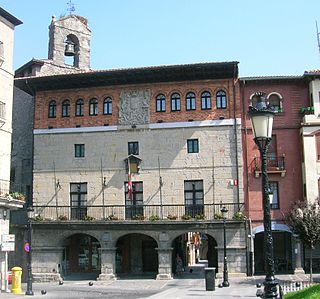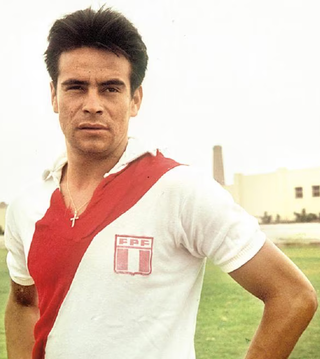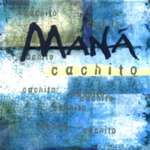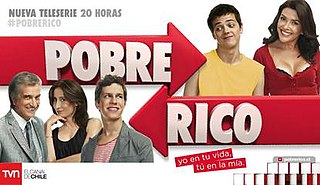A cachito is a Venezuelan ham filled croissant.
Cachito may also refer to:
- "Cachito" (Nat King Cole song), 1958
- Cachito (film), 1995 road movie
- "Cachito" (Maná song), 2000
- "Dame un cachito pa' huelé", 1946 song by Arsenio Rodríguez
A cachito is a Venezuelan ham filled croissant.
Cachito may also refer to:
Son montuno is a subgenre of son cubano developed by Arsenio Rodríguez in the 1940s. Although son montuno had previously referred to the sones played in the mountains of eastern Cuba, Arsenio repurposed the term to denote a highly sophisticated approach to the genre in which the montuno section contained complex horn arrangements. He also incorporated piano solos and often subverted the structure of songs by starting with the montuno in a cyclic fashion. For his approach, Arsenio had to expand the existing septeto ensemble into the conjunto format which became the norm in the 1940s alongside big bands. Arsenio's developments eventually served as the template for the development of genres such as salsa, songo and timba.

Consuelo Velázquez Torres, also popularly known as Consuelito Velázquez, was a Mexican concert pianist and composer. She was the composer of famous Mexican ballads such as "Bésame mucho", "Amar y vivir", and "Cachito".

Urduña/Orduña is an exclave and municipality of 4,232 inhabitants located in the province of Biscay, in the autonomous community of Basque Country, in the North of Spain.

Maite Perroni Beorlegui is a Mexican actress, singer, songwriter and producer.
Cachita may refer to:

José Martín Cuevas Cobos, known by his stage name Pedro Fernández, is a Mexican singer, songwriter, actor, and television host. Fernández began his international career as Pedrito Fernández at the age of seven.

Oswaldo Felipe Ramírez Salcedo is a retired Peruvian football striker. He is one of the highest scoring players in the history of the Copa Libertadores and on the Peru national football team, which won the 1975 Copa América.

"Cachito" is the last radio single and fifth track from Maná's second live album, Maná MTV Unplugged (1999). On the week of February 12, 2000 the song debuted and reach at its highest peak at number twenty four on the U.S. Billboard Hot Latin Tracks. It would stayed for a total of 4 weeks.

Cole Español is a 1958 studio album by Nat King Cole to the Latin market, arranged by Nelson Riddle. One of three Spanish themed albums that Cole recorded, it was followed by A Mis Amigos (1959) and by More Cole Español in 1962. The orchestral music was recorded in Havana, Cuba, and Cole added his vocals in June in Los Angeles, California. However the song "Tú, mi delirio" is instrumental; Cole overdubbed piano, rather than vocals to this track. The album was later reissued as Español and More, Vol. 1. The album was inducted into the Latin Grammy Hall of Fame in 2007. The album reached #12 on the Billboard Magazine LP chart.
Modesto "Cachito" Bria was a Paraguayan football midfielder and manager.

Cachito de Cielo is a Mexican telenovela produced by Giselle González and Roberto Gómez Fernández for Televisa. It premiered on Canal de las Estrellas on June 11, 2012. Due to the controversy surrounding the show regarding religion, and low ratings in Mexico, Cachito de Cielo concluded on November 9, 2012.

Pobre Rico is a 2012 Chilean telenovela produced and broadcast by TVN.
Giselle González is a Mexican telenovelas producer.
Roberto Gómez Fernández is a Mexican producer, artist, actor and comedian.

Angélica Sofía Castro Rivera, known professionally as Sofía Castro, is a Mexican actress. She is the daughter of Angelica Rivera and José Alberto Castro. She is the step-daughter of former president Enrique Peña Nieto.

Cachitos are a Venezuelan food similar to the croissant, and are often filled with ham and cheese.
"Cachito" is song composed by Mexican songwriter Consuelo Velázquez in 1957. It was popularized in a 1958 recording by Nat King Cole. Cole included the track as first track on the Capitol Records LP Cole Español. Capitol also released "Cachito" as a single in Spain and Latin America. In Colombia, it was popularized by Matilde Díaz.

No Que No... is an album by Mexican recording artist Pedro Fernández, released by EMI/Capitol Latin May 2012.

Cachito de Cielo, is a song written, arranged and performed by Mexican recording artist Pedro Fernández. The song was released on the special edition album "No Que No... edición especial" in 2012 and released as a single in 2013.

El Consorcio is a Spanish singing group from Bilbao, formed in 1993 by singers Amaya, Estíbaliz and Iñaki Uranga, Carlos Zubiaga and Sergio Blanco, all of them past members of the singing group Mocedades. In 2016 they received the Latin Grammy Lifetime Achievement Award.